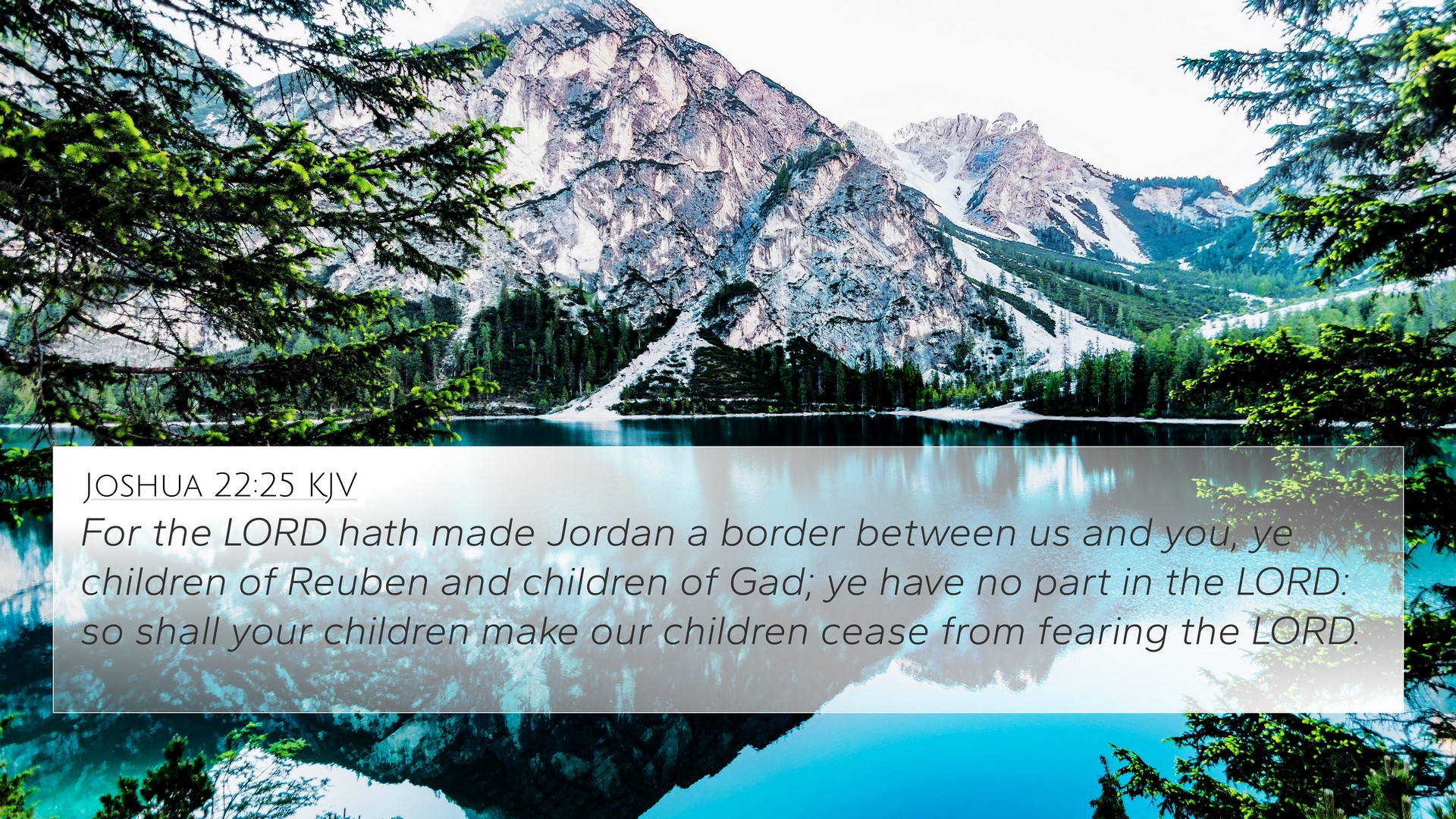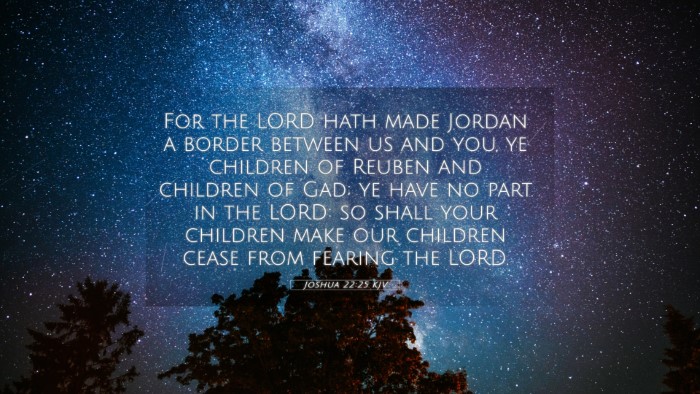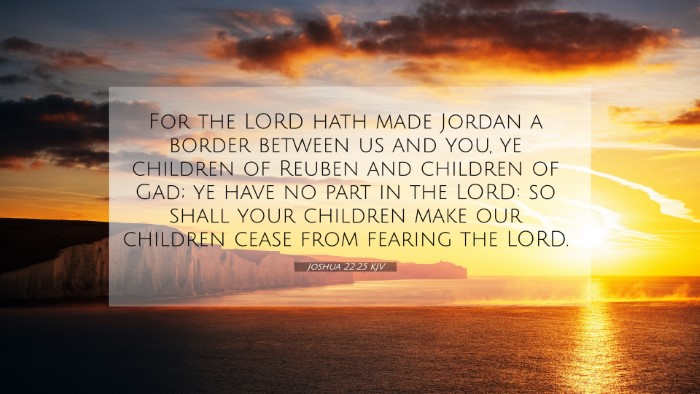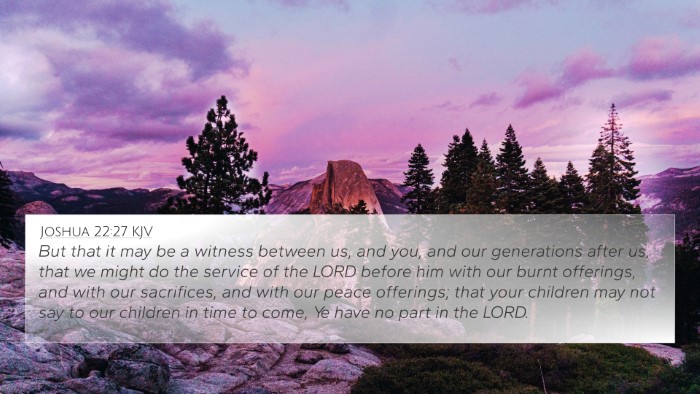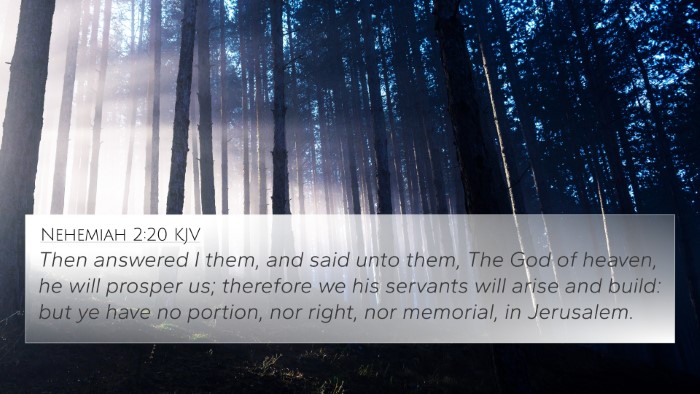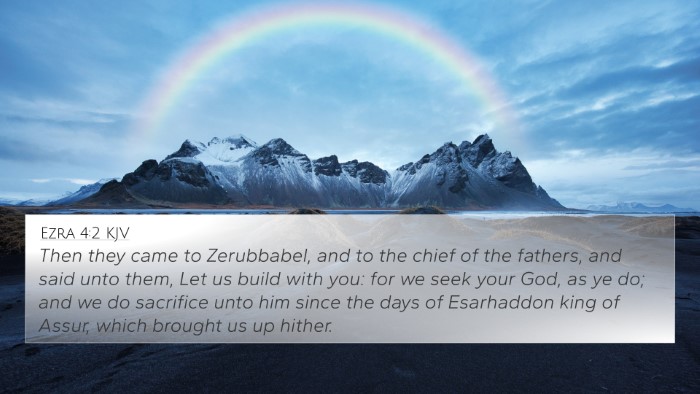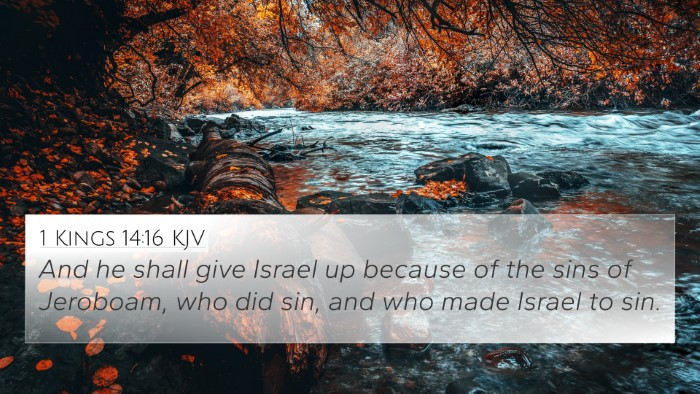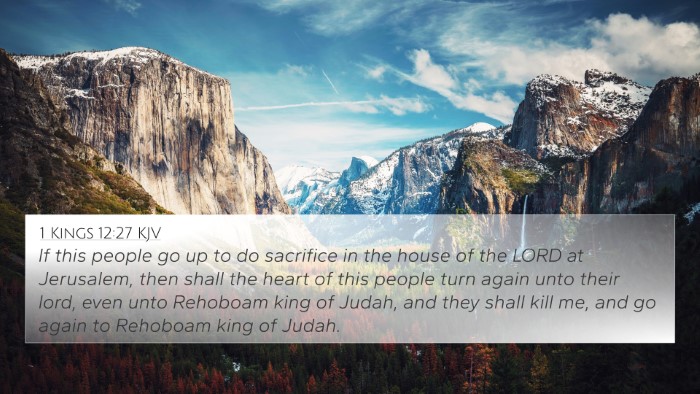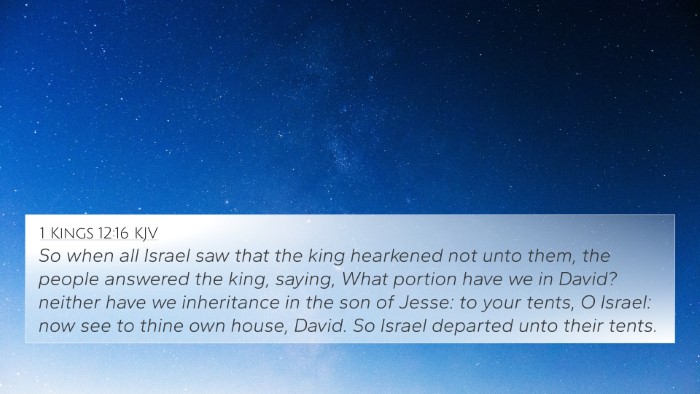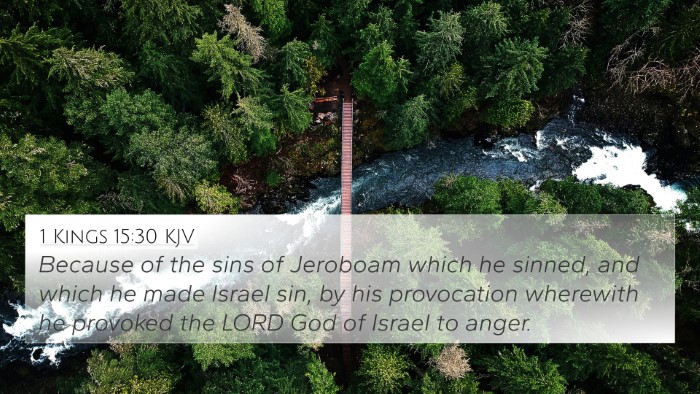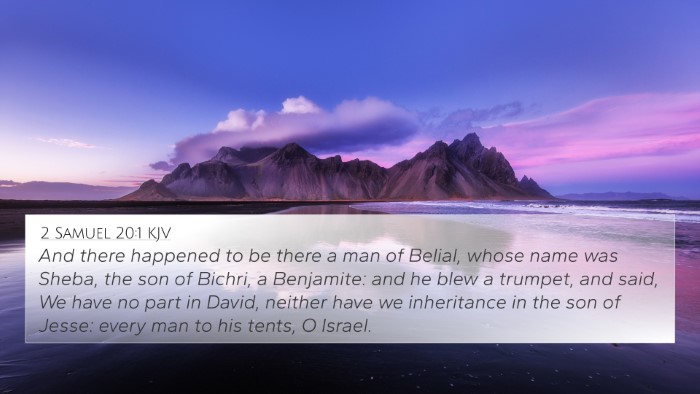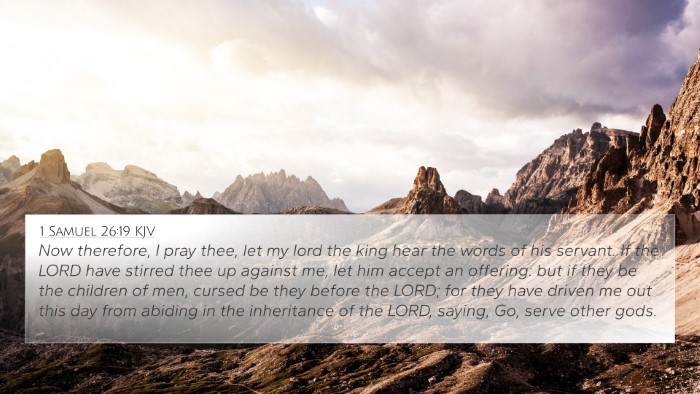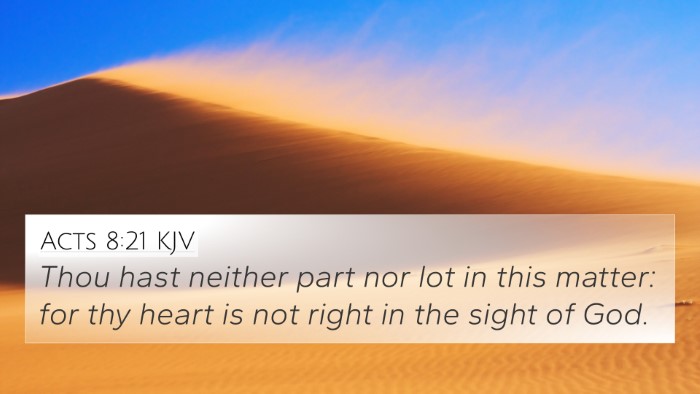Understanding Joshua 22:25
Verse Text: "For Gilead said, 'The Lord has made the Jordan a border between us and you, you children of Reuben and children of Gad; you have no part in the Lord.' So your descendants would make our descendants cease fearing the Lord.'" (Joshua 22:25, NKJV)
Overview
This verse captures a critical moment when the tribes of Gilead, Reuben, and Gad express concern about the implications of their geographical separation by the Jordan River. It highlights themes of identity, relationship with God, and communal responsibility among the tribes of Israel.
Commentary Insights
Matthew Henry's Commentary: Henry emphasizes the concern of the tribes of Gilead regarding their identity and inheritance. He explains that the geographical division could lead to spiritual alienation, a fear that their descendants might think they had no share in the worship and promise of God because of their separation.
Albert Barnes' Notes: Barnes asserts that the statement made by the Gileadites serves as both a warning and a justification of their actions. The verse illustrates the role of physical boundaries in shaping spiritual communities, with the Jordan representing not just a physical boundary but also a spiritual one that could undermine faith cohesion among the tribes.
Adam Clarke's Commentary: Clarke focuses on the historical context, illustrating how the division of the land impacted tribal relations and the collective worship. He suggests that the fear of forgetting the Lord portrays a significant moment in Israel's history, where unity and the worship of Yahweh were critical to the survival of their identity as a chosen people.
Thematic Bible Verse Connections
- Numbers 32:16-24: The negotiation of land requests from the tribes of Reuben and Gad.
- Joshua 1:13: A reminder of the promises made to the tribes regarding their inheritance.
- Deuteronomy 12:5-7: Instructions on how and where to worship God, highlighting the significance of location.
- Jeremiah 3:8: Discusses Israel's unfaithfulness in the context of their identity and land.
- Romans 11:17-21: The importance of inclusion and identity within God's community.
- 1 Peter 2:9: A proclamation of belonging to God's chosen generation, relating to the identity established in Joshua.
- Hebrews 10:24-25: The call for mutual encouragement among believers, relevant for understanding community worship.
- Acts 15:19-21: Early church considerations of community and identity parallels with Old Testament practices.
- Ephesians 2:19-22: The idea of unity in Christ as a new community, relating to the division mentioned in Joshua.
- Psalm 133:1: The blessing of unity, reinforcing the importance of togetherness in faith.
Cross-Referencing Biblical Texts
This verse is ripe for cross-referencing due to its implications regarding communal identity and relationship with God. Such cross-referencing is essential in drawing connections between various Biblical texts, enhancing deeper understanding and insights across scripture.
Significance of Cross-Referencing
Cross-referencing, or forming thematic Bible verse connections, allows for a holistic understanding of scripture, revealing how various verses interconnect and thus enriching one's study of the Bible.
Tools for Bible cross-referencing, such as a Bible concordance or Bible cross-reference guide, can assist individuals in finding cross-references to enhance their comprehension. Understanding how different biblical texts talk to one another opens avenues for deeper theological reflection.
Practical Applications
- How to find cross-references in the Bible: Use cross-reference tools and study Bibles that provide notes and links between passages.
- Working with Bible concordance: Identify key themes or words from Joshua 22:25 and search for those throughout the scriptures to see connections.
- Cross-reference Bible study: Engage with passages that share similar themes or instructions to enrich sermon preparation or personal study.
- Comparative study of Pauline epistles: Explore how the concepts of unity and identity in Paul’s letters resonate with themes found in the Old Testament.
Conclusion
The significance of Joshua 22:25 is profound as it brings to light the complexities of community identity, worship, and belonging in the context of ancient Israel. By understanding this verse and its connections to other scriptures, believers get insight into the heart of God’s intent for His people throughout the ages.
